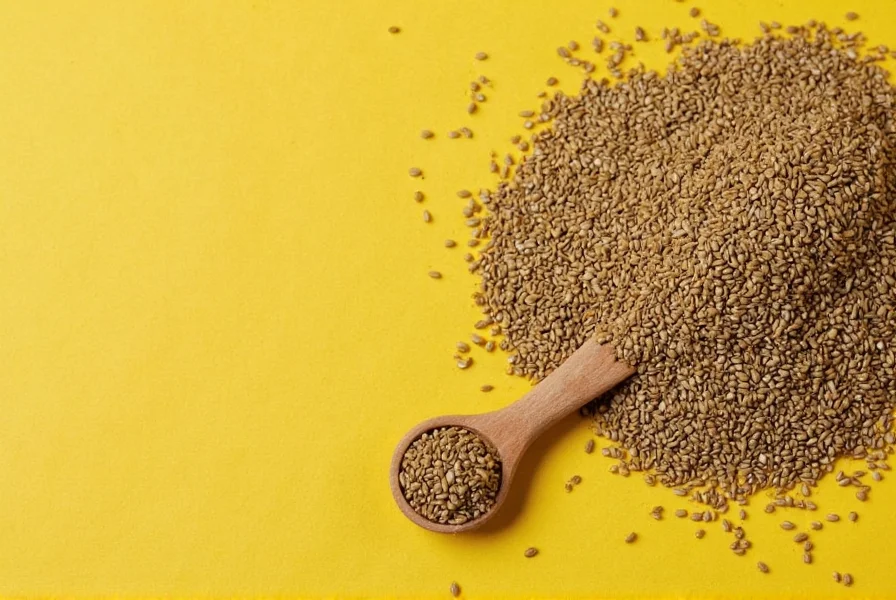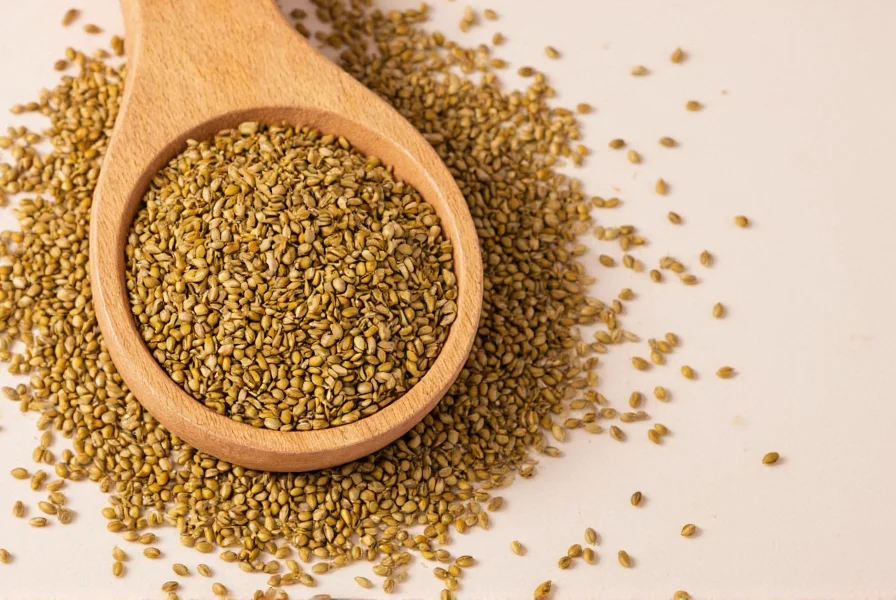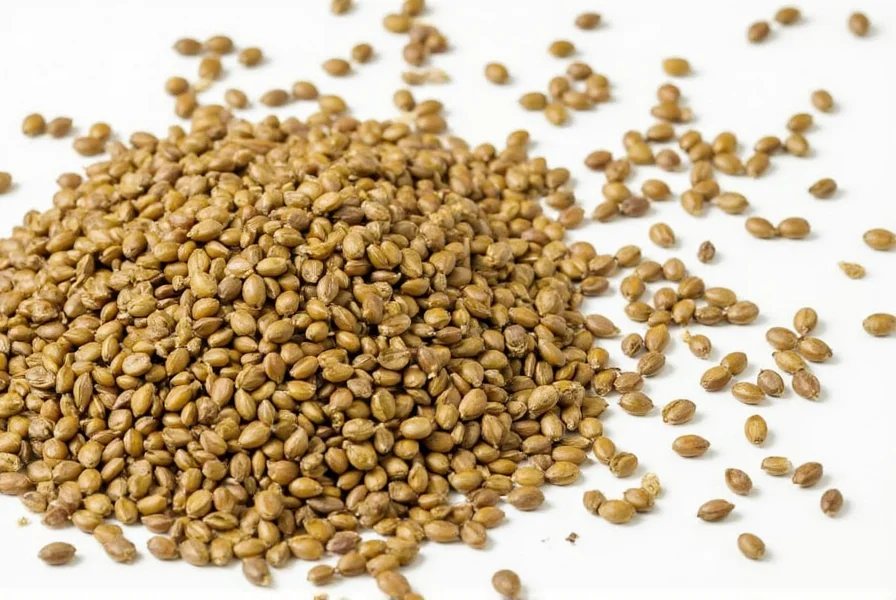Mustard seeds have been valued across cultures for centuries, not just as a culinary staple but as a traditional remedy for various ailments. These small but mighty seeds come in three primary varieties—yellow, brown, and black—each offering unique nutritional profiles and health advantages. Modern research continues to validate many of the traditional uses of mustard seeds, revealing their potential to support multiple aspects of human health through their rich composition of bioactive compounds.
Nutritional Powerhouse: What Makes Mustard Seeds Special
Mustard seeds pack an impressive nutritional profile considering their small size. A single tablespoon (about 9 grams) of ground mustard seeds contains approximately 50 calories, 3 grams of fat, 3 grams of carbohydrates, and 2 grams of protein. More importantly, they're rich in essential micronutrients and phytochemicals that contribute to their health-promoting properties.
| Nutrient | Amount per 100g | Health Significance |
|---|---|---|
| Calcium | 123mg | Bone health and muscle function |
| Magnesium | 370mg | Nerve function and blood sugar regulation |
| Selenium | 23.3mcg | Antioxidant protection and thyroid function |
| Omega-3 Fatty Acids | 0.7g | Heart and brain health support |
| Dietary Fiber | 12g | Digestive health and satiety |
Science-Backed Health Benefits of Mustard Seeds
Anti-Inflammatory Properties for Chronic Disease Prevention
Mustard seeds contain potent anti-inflammatory compounds called glucosinolates, which break down into isothiocyanates when chewed or crushed. Research published in the Journal of Agricultural and Food Chemistry demonstrates that these compounds inhibit inflammatory pathways in the body, potentially reducing the risk of chronic inflammatory conditions. The selenium content in mustard seeds also contributes to their anti-inflammatory effects, making them a valuable addition for those seeking natural approaches to managing inflammation.
Cardiovascular Health Support Through Multiple Mechanisms
Regular consumption of mustard seeds may contribute to heart health through several mechanisms. The magnesium content helps regulate blood pressure by promoting vascular relaxation, while the omega-3 fatty acids support healthy cholesterol levels. A 2020 study in the American Journal of Clinical Nutrition found that diets rich in plant-based omega-3s like those in mustard seeds were associated with a 10% lower risk of cardiovascular events. The fiber content also helps bind cholesterol in the digestive tract, facilitating its elimination from the body.
Digestive Health Enhancement and Gut Microbiome Support
The high fiber content in mustard seeds (12g per 100g) makes them excellent for digestive health. This fiber acts as a prebiotic, feeding beneficial gut bacteria and promoting a healthy microbiome. Additionally, mustard seeds stimulate the production of digestive enzymes and increase saliva production, which aids in the breakdown of food. For those exploring natural remedies for digestive health, incorporating small amounts of mustard seeds may help alleviate occasional constipation and support overall gastrointestinal function.
Antioxidant Protection Against Cellular Damage
Mustard seeds rank highly on the Oxygen Radical Absorbance Capacity (ORAC) scale, indicating significant antioxidant capacity. They contain various antioxidants including tocopherols (vitamin E), carotenoids, and flavonoids that work synergistically to protect cells from oxidative stress. This antioxidant protection may help reduce the risk of certain chronic diseases and slow cellular aging processes. The black mustard seed variety typically contains higher concentrations of these protective compounds compared to yellow varieties.
Potential Cancer-Protective Compounds Worth Noting
Emerging research suggests that the isothiocyanates derived from mustard seed glucosinolates may have cancer-protective properties. Studies in cellular and animal models indicate these compounds can inhibit cancer cell growth and promote apoptosis (programmed cell death) in abnormal cells. While human research is still developing, the National Cancer Institute acknowledges the potential of cruciferous vegetables and related compounds in cancer prevention strategies. Understanding the potential health benefits of black mustard seeds reveals promising avenues for future research.
Practical Ways to Incorporate Mustard Seeds Into Your Diet
Adding mustard seeds to your daily routine doesn't require dramatic changes to your eating habits. For those wondering how to use mustard seeds for inflammation management, try these simple approaches:
- Toast 1-2 teaspoons of mustard seeds and add them to salad dressings
- Grind mustard seeds to make homemade mustard with vinegar and spices
- Add whole mustard seeds to pickling recipes for vegetables
- Include mustard seeds in homemade spice blends for roasted vegetables
- Use mustard seed powder in smoothies for an antioxidant boost
When exploring the nutritional value of mustard seeds, remember that moderation is key—excessive consumption can cause digestive discomfort in some individuals. Most health benefits are observed with daily consumption of 1-2 teaspoons of whole or ground seeds.

Important Considerations and Potential Side Effects
While mustard seeds offer numerous health advantages, certain precautions are worth noting. Some individuals may experience allergic reactions, particularly those with existing allergies to plants in the Brassicaceae family. The high fiber content means you should increase consumption gradually to avoid digestive upset. People with thyroid conditions should consult their healthcare provider before significantly increasing mustard seed intake, as the goitrogenic compounds may affect thyroid function in sensitive individuals.
When evaluating whether mustard seeds are good for heart health, research suggests benefits when consumed as part of a balanced diet, but they shouldn't replace prescribed medications for cardiovascular conditions. The scientific evidence on mustard seed benefits continues to evolve, with most studies suggesting positive effects at moderate consumption levels.

Comparing Mustard Seeds to Other Nutrient-Dense Seeds
Mustard seeds hold their own when compared to other popular seeds. While chia and flax seeds contain higher omega-3 levels, mustard seeds offer a more diverse mineral profile with particularly high selenium content. Unlike some seeds that require grinding for nutrient absorption, mustard seeds provide benefits whether whole or ground. Understanding the complete nutritional value of mustard seeds reveals they complement rather than compete with other healthy seeds in a balanced diet.
Conclusion: Balancing Tradition and Science
The health benefits of mustard seeds represent an interesting intersection between traditional wisdom and modern scientific validation. While they shouldn't be viewed as a cure-all, incorporating these nutrient-dense seeds into a varied, whole-foods diet can contribute to overall wellness. As research continues to explore the specific mechanisms behind mustard seed benefits, current evidence supports their inclusion as part of a health-conscious eating pattern. For those seeking natural approaches to support inflammation management and heart health, mustard seeds offer a flavorful and nutritious option worth considering.
Frequently Asked Questions
What are the top three scientifically supported benefits of mustard seeds?
Research supports three primary benefits of mustard seeds: their anti-inflammatory properties from glucosinolates and selenium, cardiovascular support through magnesium and omega-3 fatty acids, and digestive health enhancement from their high fiber content. These benefits are most pronounced when mustard seeds are consumed as part of a balanced diet rather than in isolation.
How much mustard seed should I consume daily for health benefits?
For most adults, 1-2 teaspoons (5-10 grams) of whole or ground mustard seeds daily provides optimal health benefits without risk of side effects. This amount delivers sufficient nutrients and bioactive compounds while minimizing potential digestive discomfort. Those new to consuming mustard seeds should start with smaller amounts and gradually increase to assess tolerance.
Can mustard seeds help with arthritis pain relief?
Mustard seeds contain compounds with anti-inflammatory properties that may help reduce arthritis symptoms. The selenium and magnesium in mustard seeds support joint health, while the topical application of mustard seed oil has been traditionally used for pain relief. However, mustard seeds should complement rather than replace conventional arthritis treatments, and individuals should consult healthcare providers for personalized advice.
Are there differences in health benefits between yellow, brown, and black mustard seeds?
Yes, there are notable differences. Black mustard seeds generally contain higher concentrations of beneficial compounds like glucosinolates and antioxidants compared to yellow varieties. Brown mustard seeds fall between black and yellow in terms of potency. Understanding the specific health benefits of black mustard seeds reveals they may offer slightly stronger anti-inflammatory effects, while yellow mustard seeds tend to be milder in flavor and heat.
Can mustard seeds interact with medications?
Mustard seeds may interact with certain medications, particularly blood thinners due to their vitamin K content, and diabetes medications because of potential blood sugar effects. The high fiber content could also affect the absorption of some medications. Individuals taking prescription medications should consult their healthcare provider before significantly increasing mustard seed consumption to understand potential interactions.











 浙公网安备
33010002000092号
浙公网安备
33010002000092号 浙B2-20120091-4
浙B2-20120091-4